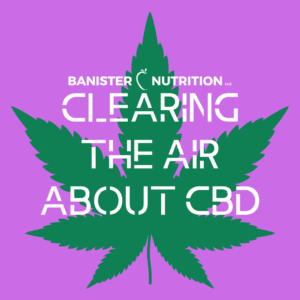Clearing the Air about CBD
 CBD is everywhere and in everything. From beauty products to food and beverages such as lattes and candies, it is predicted that the CBD market could become a $16 billion industry by 2025.
CBD is everywhere and in everything. From beauty products to food and beverages such as lattes and candies, it is predicted that the CBD market could become a $16 billion industry by 2025.
Some research has shown CBD to benefit in pain, anxiety, insomnia, depression, and seizure management, however, marketers are taking advantage of this message to go as far as stating CBD combats aging and chronic diseases.
CBD is short for cannabidiol, one of the compounds in the cannabinoid family which, in nature, is found only in the cannabis plant. Unlike THC (tetrahydrocannabinol), CBD mimics endocannabinoids produced by the body without the intoxicating “high.” CBD is not addictive and some studies have shown it to have some anti-addictive effects against compounds like opioids.
Our endocannabinoid system (ECS) plays an important role in regulating mood, memory, appetite, stress, sleep, metabolism, immune function, pain sensation, and reproduction.
Most studies have only focused on the effects of THC, therefore there are very few human studies that look at CBD and its effects. The strongest evidence we have is that CBD can reduce the frequency of seizures in certain rare pediatric disorders. Preliminary human data from small clinical trials suggest CBD may have the potential to be used for conditions like anxiety, schizophrenia, opioid addiction, and Parkinson’s disease. Note: Participants in these studies generally received several hundreds of milligrams of CBD a day; most commercial products contain an inadequate amount of ~5mg to 25mg of CBD/serving to produce significant results.
Although evidence remains inconclusive about CBD’s effects,
there is hope.
Like any substance, CBD can have side effects. CBD can interact with other foods, drugs or medications. It is metabolized in the liver which means it can elevate the blood levels of other prescription medications. If you are pregnant or planning to become pregnant, it is best to err on the side of caution and avoid using cannabidiol products because they can be contaminated with other ingredients, such as THC, that may be harmful to the fetus or infant.
If you are using or considering CBD for therapeutic treatment, please:
- Be aware cannabis and its derivatives are considered a Schedule 1 Controlled Substances and remain federally illegal
- Research products and talk to your doctor and/or dietitian so they can monitor you for side effects and interactions with foods and other medications you take
KD
Sources
Ellis, E. (2020, January 03). Clearing the Air: Food & Nutrition Magazine: Volume 9, Issue 1. Retrieved from https://foodandnutrition.org/from-the-magazine/clearing-the-air
Klotz, K. A., Schulze-Bonhage, A., Antonio-Arce, V. S., & Jacobs, J. (2018, September 07). Cannabidiol for Treatment of Childhood Epilepsy-A Cross-Sectional Survey. Retrieved from https://www.ncbi.nlm.nih.gov/pmc/articles/PMC6143823
Kyle, E. (2020, February 11). Emily Kyle Nutrition. Retrieved from https://emilykylenutrition.com/
Newell-Bissex, J. (2018, September 13). Clearing Up Cannabis Confusion: Food & Nutrition: From the Magazine. Retrieved from https://foodandnutrition.org/from-the-magazine/clearing-up-cannabis-confusion
https://www.forbes.com/sites/irisdorbian/2019/03/12/cbd-market-could-pull-in-16-bln-by-2025-says-study
